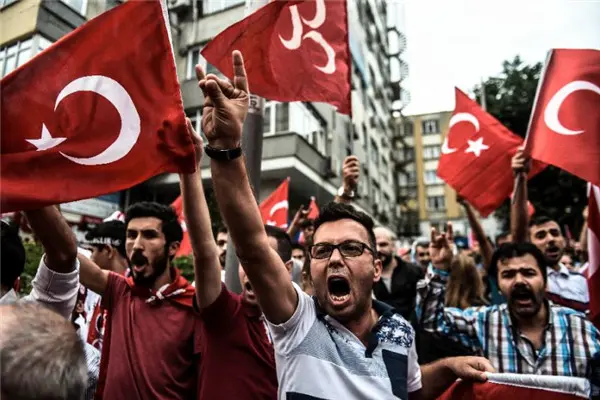Turkey has been a target of various terrorist groups, with more than 360 people killed and 2,941 others injured in 26 bombing attacks across the country since June 2015.
Both the outlawed Kurdistan Workers' Party (PKK) and the Islamic State (IS) group have stepped up their attacks in Turkey, using similar methods: suicide bombers and bombs-laden vehicles, but their purposes are different, local experts said.
"Their methods and tactics are similar. But, both the PKK and the IS increase the pace of their attacks since two years ago due to different reasons," Nihat Ali Ozcan, a security policy analyst at the Economic Policy Research Foundation of Turkey and an expert on terror, told Xinhua.
The reason behind the IS intensifying attacks in Turkey is the group is "squeezed in Syria," Ozcan said.
"Turkey has changed its policies against the IS group. Ankara has been displaying a different approach in border control as well. The group, therefore, began attacking state institutions and the foreigners in the country," he stated.
Turkey had been under fierce criticism from Western countries for not taking sufficient measures on its border against the militant group which used Turkish territory as a transit country for recruitment of fighters.
The Turkish government has increased border security since 2015 and a sharp decline in the border crossing is observed.
Istanbul was rocked on Friday by a deadly terrorist attack claimed by the Kurdistan Freedom Hawks (TAK), an offshoot group of the PKK, which killed at least 44 people and wounded 150 others.
Ozcan pointed to talks between the PKK and the Turkish government which ended in 2015 and aimed to end over 30 years of fighting that killed more than 40,000 people.
The "peace process" has collapsed over the change of situation in northern Syria and in southeastern Turkey, with the Turkish government's expectations also having changed, causing a conflict of interests between the PKK and the state, he noted.
Since then the group declared a "revolutionary people's war" and the government launched an anti-PKK operation in July 2015.
A main motive behind the attacks by the PKK is that the People's Protection Units (YPG), a Syrian Kurdish group in northern Syria which Ankara sees as an offshoot of the PKK, has enhanced its power in the war-torn country, the expert said.
The PKK also lost its power and support from the locals in southeastern Turkey after two years of urban warfare in the predominantly Kurdish cities, according to the expert.
The group now wants to display its presence and put pressure on the government by means of increased suicide attacks in metropolis, Ozcan stated.
The terror attacks carried out by both the IS group and the PKK have a "cross border character," that makes difficult for the Turkish government to struggle single-handed, according to the expert.
The Turkish security forces have launched massive operations against these groups, but there are indications for "weakness in intelligence," he said.
Ozcan cited "a capacity problem" in Turkey's spy institutions due to "politicization of intelligence" and lack of personnel after suspension of many members of police on suspicion of being members of the Gulen Movement, which the Turkish government blames for a failed coup attempt on July 15.
Social, economic and political impacts of terror are inevitable, he noted, adding that Turkey's foreign and domestic policies are influenced deeply after attacks.
"Governments sometimes use this influence for their real political interests," Ozcan said citing a debate in Turkey for constitutional change that would introduce executive powers for the presidency.
"Turkey's constitutional change and law amendments are somehow linked to the country's struggle against terror. Fight against terror becomes a tool to convince the society for the presidential system," he stated.
"Now the country is set to be asked to hand super-presidential powers to President Erdogan. In the name of better governance, a higher level of security, and effectiveness in justice, all powers must apparently be given to the super-president," Yusuf Kanli, a columnist of Hurriyet Daily News, said.
(APD)
 简体中文
简体中文

